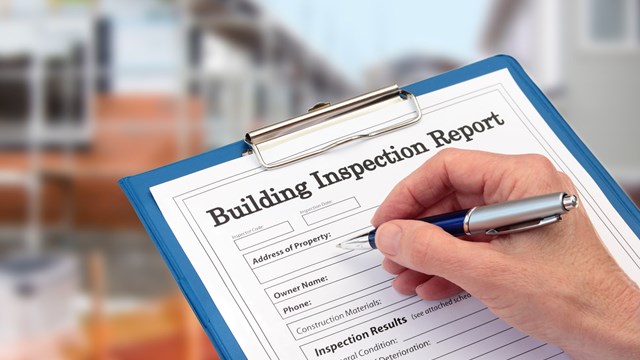For the uninitiated, tax filing for something as complicated as a community association can seem a daunting task. Fortunately, there are multiple options for homeowners associations, and with a little background knowledge, you can take the first steps toward making the right choice for your particular situation.
Some Important Basics
For starters, you should know that no matter how your association is legally organized—whether as a trust, a corporation, or a Homeowners Association (HOA)—it doesn’t affect your filing status or the need to file tax forms annually to the federal government.
According to Karen P. Sackstein, a CPA based in Fair Lawn, most New Jersey condominium communities are organized as non-profit corporations, “under NJ Title Section 15A.” Even if your association has not generated any income and owes no money to the IRS, it’s required to file a federal tax form each year. And though a great many condominium associations are run as not-for-profit entities, associations are considered corporations from the viewpoint of the IRS. (And when it comes to tax-time, that’s really the only viewpoint that matters.)
Under federal tax laws, condominium and homeowner associations have the advantage of choosing among several filing options—each with its own accompaniment of regulations and qualifications—and the ability to alter that status from year to year to their benefit. The two most common filing options to choose from are the ‘Exempt Method’ of form 1120-H, or the ‘Corporate Method’ of form 1120.
“New Jersey legal status does not affect the IRS filing status,” says Sackstein. “Most associations are required to file either an 1120 or 1120H with the IRS.” Sackstein also mentions that non-residential associations cannot file the 1120H.
A third and less commonly used method is to file as a nonprofit corporation (form 990 or 990 EZ.) This filing status can be of great advantage to an association, though it is much harder to obtain and difficult to change.
1120-H is Simplest Form
The simplest form to file (it is a mere one page), says CPA George Malloy of Wellfleet, Massachusetts, is 1120-H, under IRS Code Section 528, which was designed specifically for homeowners associations. Under this exempt method, there are several requirements that must be met in order to utilize this form.
First, according to IRS documents, at least 85 percent of the units within the association must be for residential use. Second, at least 60 percent of the association’s gross income for the tax year must consist of exempt function income. Exempt function income is defined as income consisting of membership dues, fees, or assessments from owners used to pay for the general maintenance of association property, as well as real estate taxes, principal, and interest on that property.
Examples of nonexempt income might include rental income, interest (as from a reserve fund), dividends, or capital gains, special use charges such as laundry or vending machines, and revenue from non-member use of association property.
A third requirement states that at least 90 percent of the association’s expenses for the tax year must consist of expenses to “acquire, build, manage, maintain, or care for its property.” And finally, say IRS rules, “No private shareholder or individual can profit from the association’s net earnings except by acquiring, building, managing, or caring for association property or by a rebate of excess membership dues, fees, or assessments.” The flat tax rate is 30 percent for condominium associations and an automatic $100 deductible applies.
Generally speaking, explains CPA Gary Weinman of the Braver Group, based in Newton, Massachusetts, form 1120-H works well for associations that don’t generate much in the way of taxable income. Many associations base their assessments on expected expenses and maintenance, so there is little excess that could be counted as taxable income. This filing status also benefits associations that see minor change in both revenue and expenditure from year to year. Money set aside in reserve funds is not taxable, though the interest earned on the amount is subject to tax.
Under the form 1120-H, an imbalance of exempt income versus expenses is not necessarily a bad thing, adds Malloy. Suppose the association collected $100,000 in membership assessments but the yearly expenditures totaled only $45,000: Since dues are not taxable, the gain of income over expenses is not taxed, only the interest.
One of the main disadvantages of filing form 1120-H is the flat 30 percent tax rate, which can be significantly higher than the graduated corporation rates (beginning at 15 percent) available when filing form 1120, though this of course ultimately depends on the final calculation of taxable income after expense allocation. For some associations, after the $100 deduction is applied, the tax rate can prove to be very favorable. Condominium associations that generate a good deal of taxable income find it more difficult to apply expenses to meet the stringent 90 percent rule. For associations that have suffered a loss in a particular year, form 1120-H does not allow for an operating loss deduction for the following year.
Corporate Filing Is More Flexible
The other filing option is the traditional corporate method, Form 1120, under IRS Code Section 277. While it allows for the advantage of being more flexible with the allocation of expenses (no 90 percent rule), and can save money with much lower tax rates (starting at 15 percent for the first $50,000 of taxable income) it also creates a much more complex calculating scenario. For the most part, as with form 1120-H, membership dues are considered tax-exempt income.
“Make sure when filing an 1120, the association has proper documentation if there is excess membership income and the association is carrying it forward under IRS Revenue Ruling 70-604,” cautions Sackstein. “The statutes require that an election to do so be made prior to the end of the year and be adequately documented. We also recommend that any excess be rolled into the next year’s operating budget to further support the association’s tax position.”
In addition to the web of restrictions and qualifications associated with the use of form 1120, there is also a higher risk of an audit from the IRS. The multiple page form is often best maneuvered by an experienced and knowledgeable tax professional.
Condominium associations that generate substantial income from non-exempt sources such as rental units or clubhouse rental fees for non-members, for example, would most likely do better with the 1120 form. A significant advantage for form 1120 filers allows more flexibility for fluctuations in income. If your association has three rental units and all are filled in one year, that income is taxable. If the next year they fail to rent at all, that loss can be carried over.
In another example, if there is an abundance of assessment fees after all expenses have been deducted, the association can elect to either return the excess as a rebate to the homeowners or capitalize and defer the assessments to the following year, thereby protecting that gain from being taxed (IRS Revenue Ruling 70-604).
Non-Profit Filing
Filing as a non-profit entity (501 (c)(4), form 990) is the least common method for associations. Malloy has obtained this status for several of his clients and it’s not easy. “There is an incredible amount of paperwork and research involved,” he says. “Close attention must be paid to the wording in your association’s bylaws as this can affect your status in the eyes of the IRS.” Having your accountant wade through the morass of forms and filing of documents can be a more costly proposition, but under the right circumstances, it can prove to be the best option.
In order to qualify for 501(c)(4) status, the IRS requires evidence “that areas such as roadways and park land that it owns and maintains are open to the general public and not just its own members.”
In one example, a fierce autumn storm provided the impetus to seek non-profit status for one of Malloy’s association clients. The power of the storm stripped a beach fronting the association of much of its sand, and created a very vulnerable situation for both the homeowners and the future of the beach itself.
Non-profit status allowed association members to use their dues to pay for beach renourishment, as well as security and road maintenance, all for shared public access to the waterfront. This status even qualified the association to receive state funds to help pay for the beach renewal.
Once non-profit status has been approved, it cannot be changed without permission from the state Attorney General’s office. In addition to being freed from tax payments, non-profit status offers more protection to the individual homeowner in the face of liability. “It’s an umbrella over the entity,” says Malloy. “In the case of a costly lawsuit, the non-profit entity gets sued, not the individual.”
Certain circumstances can make one form worth filing over the other, year by year. Much of what determines which form to file come tax time depends on whether the association has made or lost money in a given year, says Malloy. It is in an association’s best interest to fill out both forms completely and determine which form results in a lower tax payment before deciding which status to file.
It pays—in many ways—to have a reliable CPA on your side when considering your association’s tax options. Their familiarity with tax laws, restrictions, and audit red flags can prove invaluable. Even if you prepare your association’s tax forms yourself, it’s a good idea to seek advice if you know that circumstances are going to change, advises Weinman. The addition of rental units or the opening of a clubhouse that will be open to the public, for example, will not only add taxable income to your association, but a new level of complexity.
Weinman offers some simple—but very important—advice: “Keep records. It seems obvious, but many people don’t, and this can create some real headaches at tax time. Association managers have to know what’s what; and that includes every check that’s written for expenses and all deposits coming in. Someone has got to be watching the store, so to speak.”
Using specialized software like QuickBooks can make things a lot easier, Weinman says, even if you are paying a professional to prepare your association taxes. “Generally, the better the records, the cheaper the accounting fee. Sometimes we’ll get a shoebox full of paperwork to deal with, and while we’ll work through it, it’s a much more costly proposition.” That sort of disorganization doesn’t help anyone and can cause troubles in the long run.
Those in charge of “watching the store” also need to know when federal taxes should be filed. Association bylaws should determine when the calendar year ends; returns and any payments are always due 75 days after the end of the fiscal year. If necessary, associations can file for an extension of up to six months; though any estimated taxes must be paid by the original filing deadline in order to avoid penalty and interest.
Tax time for your association can be made a lot easier with a little planning, a little help, and a bit of knowledge on tax filing status.
Laura V. Scheel is a freelance writer from East Orleans, Massachusetts. Associate Editors Hannah Fons and Brendan J. Flaherty contributed to this article.







Comments
Leave a Comment